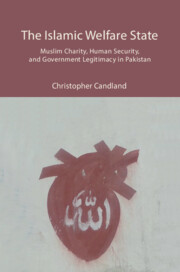Book contents
- Frontmatter
- Dedication
- Contents
- List of Illustrations
- Preface
- Note on Translations and Transliterations
- List of Abbreviations
- Part 1 Introduction
- Part 2 Piety and Public Goods
- Part 3 Pakistan
- Part 4 Charities
- Part 5 Religion, State, and Public Goods
- Afterword
- Acknowledgments
- Appendix: Charities Studied
- Glossary
- References
- Index
4 - Muslim Identities and Political Parties
Published online by Cambridge University Press: 30 April 2024
- Frontmatter
- Dedication
- Contents
- List of Illustrations
- Preface
- Note on Translations and Transliterations
- List of Abbreviations
- Part 1 Introduction
- Part 2 Piety and Public Goods
- Part 3 Pakistan
- Part 4 Charities
- Part 5 Religion, State, and Public Goods
- Afterword
- Acknowledgments
- Appendix: Charities Studied
- Glossary
- References
- Index
Summary
O men, We created you from a male and a female, and formed you into nations and tribes that you may recognize each other.
Diversity can be tolerated, or it can be embraced. The Quran seems to suggest not only that tolerance of diversity is good for minorities but also that interaction with people from other backgrounds enables one to understand oneself better. This is an insight, that diversity is not merely to be tolerated, nor even to be recognized as a good in itself, but to be recognized as essential if one is to understand oneself. For by interacting with others one might learn that the apparently natural and inevitable is in fact cultural and pliable. Diversity allows one to be “reminded that there is no center of the world.”
More than 200 million Muslims live in Pakistan, about 98 percent of the population. This is about 15 million more Muslims than India, where Muslims make up just over 13 percent of the population. But reference to Pakistan as a ‘Muslim country’ or ‘Muslim nation’ can give rise to the mistaken notion that Pakistan's population is monolithically Muslim. Pakistan's population is extraordinarily diverse. There are Christian, Hindu, Sikh, Parsi, agnostic, and atheist Pakistanis. And the cultural and religious diversity within the Muslim community is also very great. No country has a richer variety of Muslim religious traditions and political identities. There are both Shia Muslims and Sunni Muslims; the former make up about a quarter of the population of Pakistan. Within the Shia community, there are Bohra, Ismaili, and Ithna-Ashari (Twelver Shias). Within the Sunni community, there are those who follow the Hanafi fiqh (school of jurisprudence) and those known as Ahle Hadith (people of the ahadith), who do not follow any fiqh;4 within the Hanafi community, there are Barelvi and Deobandi. And the ‘Islamic’ political parties are as varied as the fiqh (schools of Islamic law) and masalik (religious denominations).
This chapter provides a concise history of the establishment of Pakistan, its Muslim identities, and its ‘religious political parties,’ as the self-professed ‘Islamic’ political parties are known in Pakistan.
- Type
- Chapter
- Information
- The Islamic Welfare StateMuslim Charity, Human Security, and Government Legitimacy in Pakistan, pp. 55 - 84Publisher: Cambridge University PressPrint publication year: 2024



